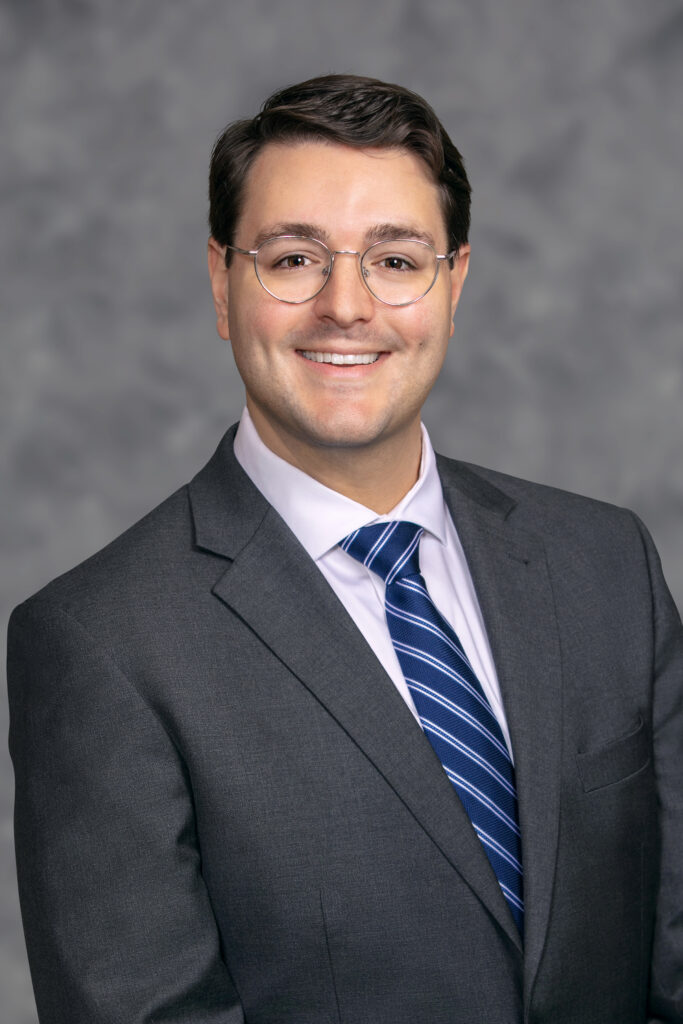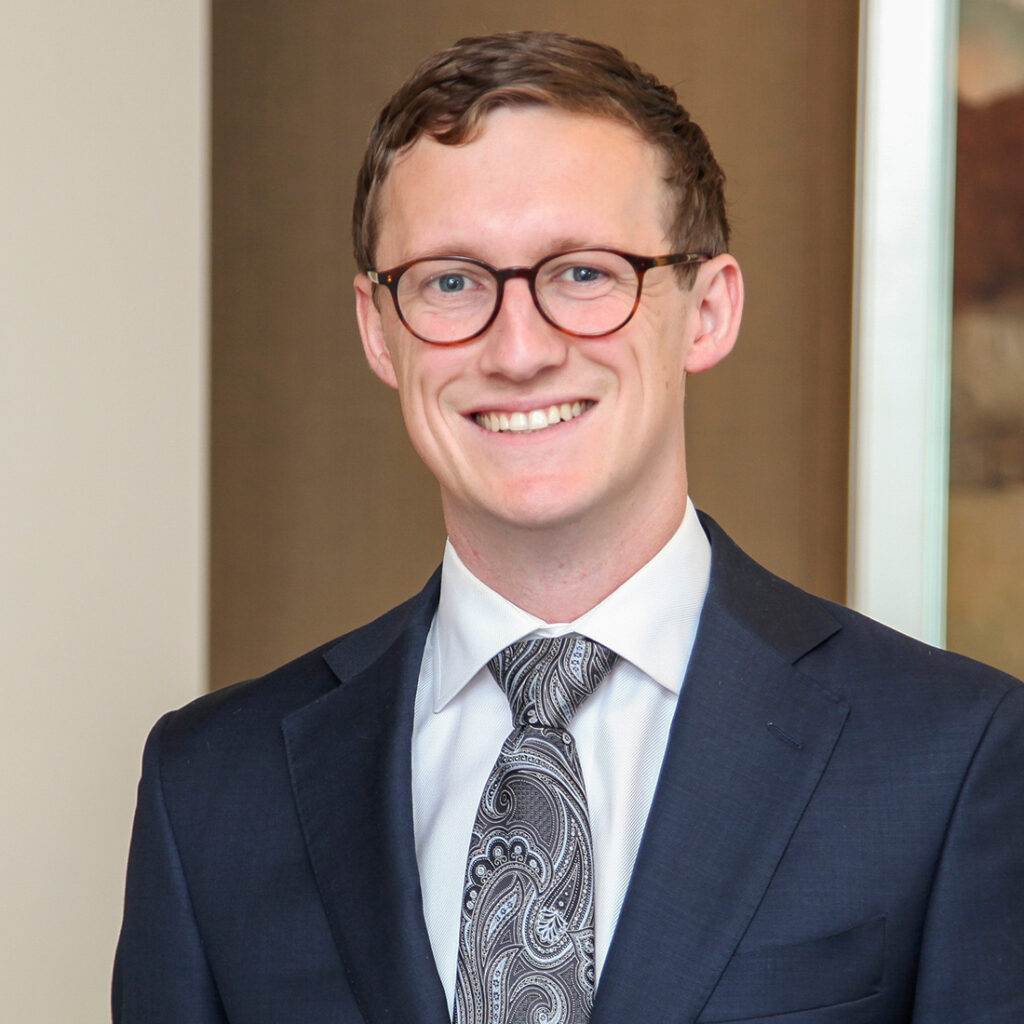Two separate teams of associates from Haynes Boone have prevailed in two pro bono cases that protect the Eighth Amendment rights of an extremely sleep-deprived inmate whose health has suffered and an intellectually disabled inmate on death row.
The results are the product of more than 1,600 pro bono hours of work by associates in the firm’s Dallas, Fort Worth and Houston offices. The time devoted to the cases yielded major appellate wins in two courts where it’s often difficult to prevail in prisoner constitutional rights cases: the U.S. Court of Appeals for the Fifth Circuit and the Texas Court of Criminal Appeals.
In the first win on March 22, the Fifth Circuit reversed a lower court’s dismissal of inmate Michael Garrett’s lawsuit that challenged the Texas Department of Criminal Justice’s sleep schedule at the Huntsville prison where he is only allowed two and a half hours of uninterrupted sleep a night.
Five days later, the Texas Court of Criminal Appeals handed the firm the second win when it overturned the death sentence of Randall Mays and resentenced him to life in prison after determining his lawyers had proved that their 64-year-old client has an intellectual disability.
“Not every firm would be comfortable taking on a client who has been convicted of shooting police officers, and not every firm would be comfortable representing somebody who is incarcerated,” said Dallas associate Sam Mallick, one of the lawyers on the death penalty case.
Doing so is “not approving the underlying criminal conduct,” Mallick added, “but regardless of who you are, you have constitutional rights and these rights should be protected. The only way those rights are going be protected is if people with law licenses stand up and protect those rights.”
“We’re it,” he said. “There’s nobody else who can raise an Eighth Amendment claim. If you have a law license, there’s an obligation to do this kind of stuff.”
‘This is a life or death matter’
Mallick said Haynes Boone got Mays’ case through former partner Ann Al-Bahish, a prolific pro bono doer who left the firm last year to go in-house at Citgo. The firm worked on the case with lawyers from the Dallas Capital Habeas Unit and the Texas Office of Capital Forensic Writs, who needed a private-practice partner that could devote extra manpower and resources, Mallick said.
In 2008, a Henderson County jury convicted Mays of murdering two sheriffs deputies and he was sentenced to death. Haynes Boone got involved in August 2020 and spent years collecting information on Mays after successfully filing a motion for evidentiary hearing with the Henderson County trial court. Beyond Mays himself, the team interviewed Mays’ past teachers, family members and neighbors and friends who knew him growing up.
“For a case like this, you have to establish not only a low IQ score, but also you have to show that [the low IQ] was onset early in life, typically before the age of 18,” Mallick said.

Mallick said the interviews required a lot of tenacious “field work,” including traveling to small Texas towns and knocking on the doors of homes that may or may not belong to the person the team was looking for. And even when they were, not everyone was willing to talk.
“There were people who were not happy with what Randall had done and who didn’t want to help us,” Mallick said, as well as the typical challenges of interviewing witnesses long after an event.
“Interviewing witnesses over a decade after the conviction makes everything so much harder. It’s another 10 or 20 years of memories fading,” he said.
Even those who “remembered Randall real clearly” and agreed to be interviewed also had to agree to submit an affidavit, which is “no small ask,” Mallick added.
“Every bit of effort put into this case was necessary for the result that we got,” Mallick said. “There’s no way to overcome the really high standards of a post-conviction review if you don’t put everything you have into the case.”
The more than 700 hours that the Haynes Boone team put into the case also involved finding multiple neuropsychologists to put in the work to determine Mays’ intellectual disability status and to serve as expert witnesses. Mallick said the experts visited Mays in prison to spend a couple of days talking with him and observing him. They determined he had an IQ of 63 and their reports provided overwhelming evidence of Mays’ intellectual disability, the firm said.
“The tests are not just, ‘Here’s an IQ test and a No. 2 pencil.’ They’re interviews,” Mallick said. “It’s administering the tests but also … [determining] adaptive functioning and things like the ability to perform day-to-day tasks.”
As the Feb. 10 2023 evidentiary hearing approached, the turning point in the case came when the team submitted a proposed findings of fact and conclusions of law motion that the state of Texas agreed to since their experts could not rebut the opinions of Mays’ experts.
“You don’t have to be an expert to tell that he has a disability,” Mallick said, but “you just always expect that whatever your expert says, the other side is going to find someone who says the opposite. When that wasn’t the case, it was a really wonderful development. That was the moment where we thought, ‘OK, we’ve got a winner here.’ It was still really important to submit good, solid findings of fact that would tell the story we needed to tell … [but] being able to submit undisputed evidence is really powerful.”
At the evidentiary hearing, the trial court agreed that Mays had an intellectual disability and issued the official findings of fact ruling that was submitted to the Texas Court of Criminal Appeals that same day, according to court records.
From there, it was a yearlong waiting game that concluded last week when the CCA issued its ruling taking Mays off death row.
Mallick, who rejoined Haynes Boone in August 2020 after leaving for a year to complete a federal clerkship, said he got on the case within a couple of weeks of returning.
“It was a really great introduction to lawyering,” he said. “And that’s just the silver lining on top of getting to do something good for somebody.”
One of the most valuable experiences to Mallick was the series of regular Zoom meetings the whole legal team participated in to collaborate and provide updates, because they helped him understand “how the pieces fit together” and taught him how to rely on other attorneys, trust them, and “that what I was doing was part of something bigger.”
“It was such an eye-opening experience because I had my own little corner of the case that I was dealing with … then I’d get on this call and realize there were a dozen other people who had been out doing similar stuff,” he said. “I’ll add that those weekly meetings were really therapeutic because when the stakes are this high, it’s tough. This is a life or death matter. You start to think about what is going to happen if we lose? A man is going to die. And that gets really heavy.”
Other Haynes Boone associates on the matter included Julia Peebles, Dominique Baldwin, Joe Pinto, Grant Armentor and Martha Wyrick.
A ‘decadelong quest for an ordinary night’s sleep’
By getting on Haynes Boone’s other Eighth Amendment pro bono case on behalf of Michael Garrett, the sleep-deprived inmate, Fort Worth associate Chris Knight hit a few milestones in his appellate practice.
As lead lawyer, Knight handled his first oral argument before the Fifth Circuit in December, which added another dimension of sentimental achievement to a place he spent a year clerking at.
And when the Fifth Circuit ruled in favor of Knight’s client on March 22, the ruling hit multiple layers of additional milestones. The ruling clarified Fifth Circuit prisoner’s rights law to align it with binding U.S. Supreme Court precedent while putting Garrett one step closer in his “decadelong quest” to improve his health by getting “an ordinary night’s sleep,” Knight said.

In the majority opinion, which was written by Circuit Judge Edith Brown Clement, the court addressed two key errors made by the lower federal Corpus Christi federal trial court and other trial courts throughout the Fifth District’s jurisdictional reach.
First, the trial court incorrectly required Garrett to prove his sleep deprivation caused his existing health problems and all that was required of Garrett was to prove that the inadequate sleep represented a substantial risk for serious harm. Second, the court clarified that the Texas Department of Criminal Justice’s use of penological interests — reasons related to necessary prison administration — to justify its prison sleep schedule were irrelevant because the U.S. Supreme Court “has clarified that a prison’s penological purpose has no bearing on whether an inmate has shown ‘deliberate indifference’ for purposes of an Eighth Amendment claim,” the opinion said.
Knight said the opinion makes it “very clear about how to litigate these cases” because parties on both sides of this kind of litigation now have “a blueprint to know what the law is.”
In the litigation, Garrett alleged that TDJC is violating his Eight Amendment right to protection from cruel and unusual punishment by allowing him at most two-and-a-half hours of uninterrupted sleep per night due to bunk checks, yelling inmates, medication administration and breakfast, which begins at 2:30 a.m. Garrett, who has been imprisoned for 30 years, alleges the sleep deprivation has contributed to his declining health — migraines, seizures, vertigo, a skin condition, edema, hypertension and kidney disease. His lawsuit seeks an injunction mandating a prison schedule that would give Garrett around six hours of sleep a night.
Garrett filed his lawsuit in 2013. For the first four years of the litigation, Garrett represented himself. Despite the baseline disadvantage pro se litigants have, he prevailed in the Fifth Circuit once on his own. In 2017, Garrett finally got pro bono counsel when Naomi Howard, at the time an attorney at Rusty Hardin & Associates, took the case. The case went to a bench trial on remand in late 2018 before U.S. District Judge Nelva Gonzales Ramos, who denied Garrett relief.
Haynes Boone got involved in 2019 after partner Mark Trachtenberg learned about it from former Fifth Circuit Judge Gregg Costa. Trachtenberg sent an email to the firm’s appellate group seeking a volunteer to take the case, and Knight raised his hand.
The ruling is the product of 900 hours of pro bono labor by Haynes Boone — 400 of which Knight has personally spent on the case.
“Mr. Garrett could not afford a lawyer … and we wanted to help him get more sleep,” Knight said. “Getting [more] experience is meaningful and important too, so pro bono is a win-win in that regard. You get the opportunity to get great experience while doing something good and helping someone in need.”
Other lawyers on the case included associates Chance Fletcher and Wes Dutton.
For more information on the case, read last week’s Litigation Roundup.
